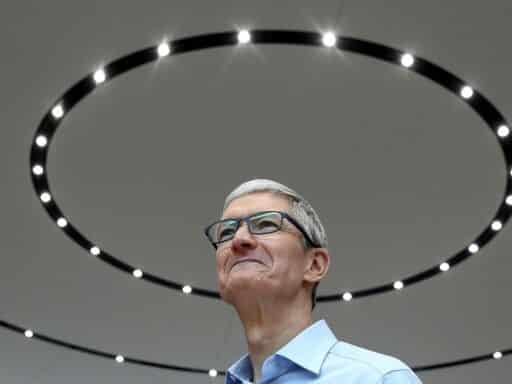The Apple car, if there is one, could be on the road by 2024.
The long-rumored, long-dead Apple car may have been resurrected. Reuters reports that Apple is planning to start production of its own line of electric cars with pioneering battery technology in 2024. Apple has not confirmed the report, but investors took the news seriously enough to send Tesla’s already volatile stock into a dip.
Apple has been trying to get a car project rolling for years with little public success so far — which makes the prospect of it actually producing its own car by 2024 no sure thing. That said, building a new car line is a daunting process that will always take time, especially if the company behind it is hoping to incorporate new technology into the project. Apple, being Apple, almost surely will want to do this. The company has always been interested in doing its own thing, from its operating system to, most recently, its M1 chips.
Also, it’s Apple, one of the richest and most innovative companies in the world. Never count Apple out.
We first learned of a possible Apple car in early 2015 when the Wall Street Journal reported that the company was trying to build a Tesla competitor. The project, dubbed “Titan,” was approved by CEO Tim Cook about a year earlier, the paper said. But Apple car plans may date back much earlier: Founder Steve Jobs reportedly considered building a car in 2008. The plan then was to build an electric car as opposed to creating a self-driving one, which is what Google and Uber were trying to do at the time. While it would take a considerable amount of time and money to actually get a car on the road, Apple had plenty of both, according to the report. About 1,000 people were said to be working on the project. Apple declined to comment on the story.
By the end of 2016, however, it seemed that Apple had shifted from making its own cars to making self-driving technology that would be used in other manufacturers’ cars, and hundreds of people left the project. Even so, it had apparently already yielded some results: The New York Times reported that Apple had a “number of fully autonomous vehicles in the middle of testing, using limited operating routes in a closed environment.”
There was also some hard evidence that something automotive was in the works at Apple. In 2017, the company got a permit from the California Department of Motor Vehicles to test self-driving on public roads in the state. Cook also said that the company was working on autonomous driving software around this time. And in 2018, an Apple test car (made by Lexus) was rear-ended by another car (driven by a human), offering further proof that Apple was still doing something in the space. But an actual car produced by Apple seemed increasingly unlikely though not completely out of the question. Meanwhile, Apple had yet to confirm it was working on an actual car.
At the beginning of 2019, it looked like Project Titan, whatever it was, was on the brink of death. Apple laid off 200 people on the Titan team in January, but in June, it acquired a struggling autonomous-driving startup, renewing hopes that Titan was still going. Other than that, it seemed as though the company’s interest in self-driving technology was waning; its test cars logged far fewer miles in 2019 than in 2018.
While there have been reports throughout 2020 that indicate that Apple has revived plans to produce its own cars — the rumor blog Apple Insider has dutifully cataloged patents filed by the company for everything from motors to self-tinting windows — the latest Reuters report is perhaps the most definitive yet. It also says that Apple will use its own self-driving technology and build its own cars, marrying the two phases of Project Titan into one product that could be on the road within five years.
And, according to Reuters, Apple is hoping to bring something new to the table with a battery design that will make electric car batteries cheaper and last longer. One person involved in the project described the battery technology as “next level.” Apple’s focus on battery design makes a lot of sense given Apple’s work on improving batteries in its existing products. We may be seeing some of the technology Apple hopes to incorporate into Project Titan now; the iPhone 12 Pros and iPad Pros come with lidar sensors, which self-driving cars use to map out their surroundings and detect nearby objects.
The report, though unconfirmed, had an impact, even as some analysts seemed unconvinced that a car will actually happen. Lidar stocks soared, and Apple got a bump as well. Tesla, which would likely be the Apple car’s biggest competition, had a bad few days. Founder Elon Musk, on the other hand, didn’t seem too thrown by the report. He also admitted that he tried to sell Tesla to Apple, but Cook wasn’t interested.
During the darkest days of the Model 3 program, I reached out to Tim Cook to discuss the possibility of Apple acquiring Tesla (for 1/10 of our current value). He refused to take the meeting.
— Elon Musk (@elonmusk) December 22, 2020
Of course, any report about Apple’s future comes with plenty of caveats and little certainty, as demonstrated by the car’s path up to this point. But there does appear to at least be a path now. Now we’ll see if anything drives down it.
As it has all along, Apple declined to comment.
Author: Sara Morrison
Read More



